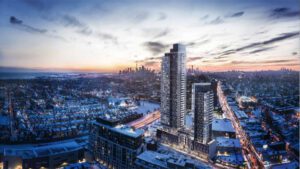Instead of having contractors construct the home on-site, a mobile home, also known as a manufactured home, is constructed wholly in a factory and relocated to the chosen place. As they are semi-permanent, mobile houses aren’t always completely mobile, although they can move when needed.
In Canada, the majority of mobile homes are either single-wide or double-wide. Single-wide mobile homes are no more than 18 feet wide and 90 feet long. Since they are a single construction, they are the cheapest and most portable. Double-wide mobile homes are more difficult to carry because they are over 20 feet wide and come in two substantial parts.
Because to their lower costs and simplicity of transportation, mobile houses have become more and more popular in recent years. While some house owners choose to locate their mobile homes on vacant property, others choose to live in mobile home parks. If you’re considering buying a mobile home to live in, here are five things you should know.
Mobile homes lose value over time
When you purchase a home, you have the option to make modifications and renovations that will raise the property’s value over time. But despite any upgrades, a mobile house nearly always loses value over time. Mobile homes lose value soon after leaving the factory, much like new cars do. The underlying land is what causes the difference. The land beneath a house is included in the purchase price, but unless you have erected a mobile home on ground you own, it is only regarded as personal property. The value of your property may rise over time if you own the land along with your mobile home, but it is almost always due to the land and not the mobile home.
Mortgages for mobile homes might not be available.
A traditional home may be financed with a mortgage fairly easily, but a mobile home can be more difficult to finance and may require alternative sources of funding. You might be able to obtain a conventional mortgage for your mobile home if it is built on a foundation and you already own or intend to purchase the land on which it is placed. Your mobile home is often ineligible for a traditional mortgage if you own the land but it is transportable. You can still consider a chattel mortgage, which uses the borrower’s personal property as collateral for the loan.A personal loan is probably your best choice if you don’t own the land but want to move into a mobile home park; nevertheless, you should be aware of any loan limits your lender may have to make sure you can fully cover the mobile home.
The Importance of Good Mobile Home Installation
Around 80% of all warranty complaints about mobile homes are related to improper or faulty installation, which can seriously harm the home. Homeowners may begin to notice problems after only a short period of time, such as leaks that worsen over time or warping and bowing that is very expensive to fix. Mobile homes can be built on a variety of foundation types to guarantee optimum placement. To prevent water from collecting underneath the house, you need also make sure there is a slope on one end of the structure.
Mobile homes have smaller doors than traditional homes.
A mobile home can be updated and renovated in a variety of ways to make it more contemporary. Although mobile home doors are often smaller than those put in houses constructed on-site, replacing them is one of the most common tasks mobile homeowners undertake. According to return on investment, upgrading doors is the best mobile home upgrade. The windows can also be replaced with site-built, more energy-efficient home windows, but you will probably need to adapt them because they are frequently non-standard sizes.
Less stigma is associated with mobile homes
Living in a mobile home used to be stigmatised because it was seen to be a sign of poor income and poverty. This has been gradually changing as more people explore for alternatives to traditional housing as they struggle to make ends meet. Nevertheless, some manufacturers produce luxurious mobile homes that have little resemblance to the mobile homes that the majority of people are accustomed to.
In the present housing affordability problem, mobile homes are a great alternative for purchasers looking for a home. You may find the ideal mobile home and the land to go with it with the assistance of a seasoned real estate agent.





